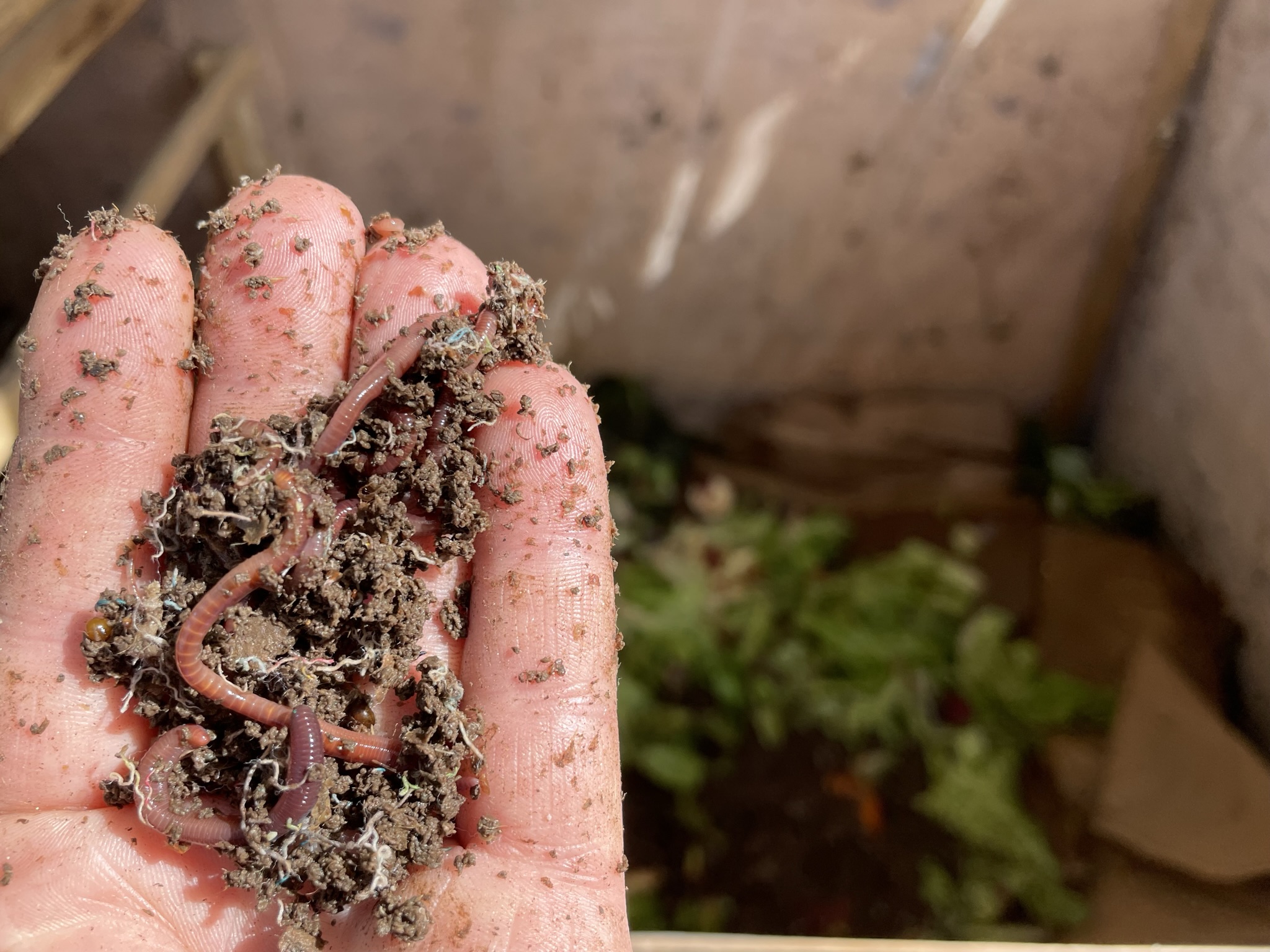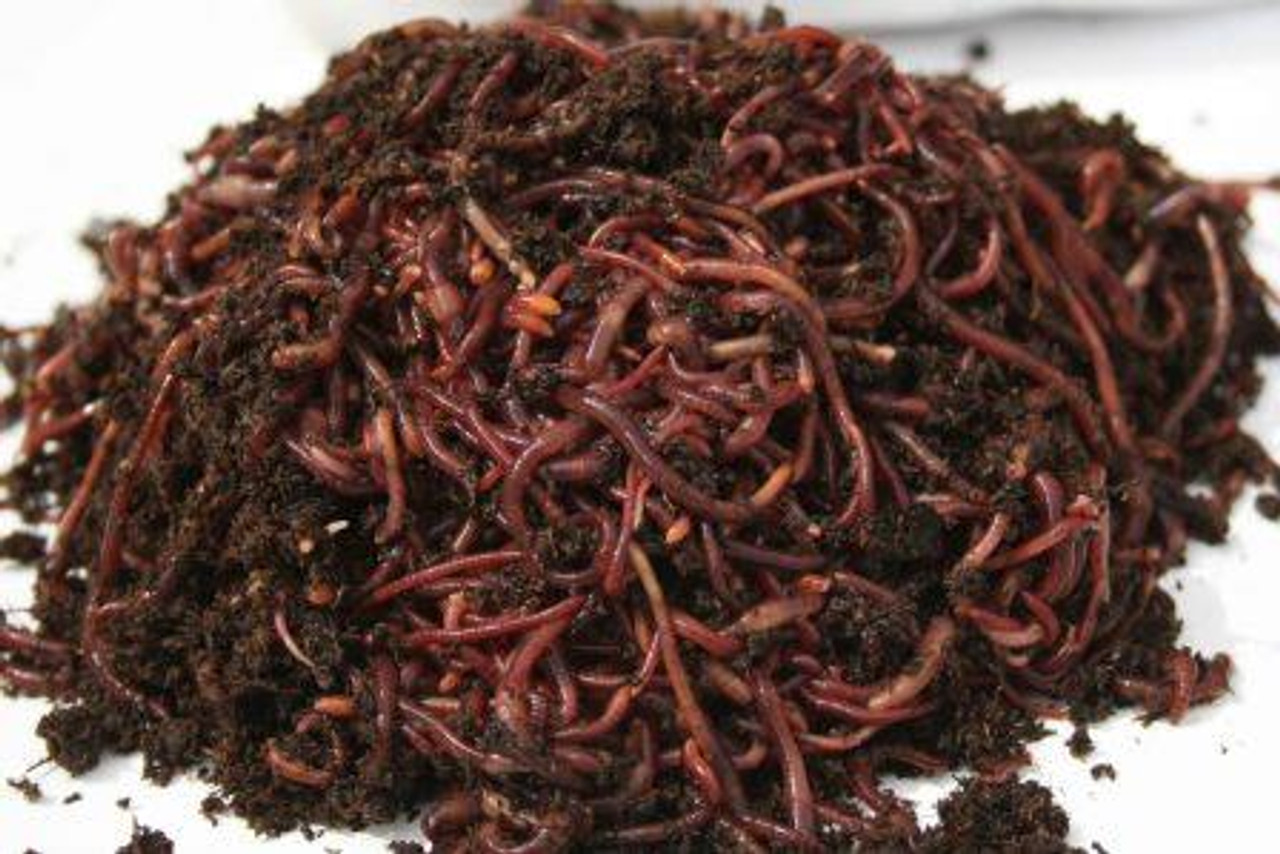The Benefits of Making Use Of Red Wiggler Composting: Discover How This Eco-Friendly Method Boosts Soil Wellness and Promotes Plant Development
The technique of red wiggler composting offers an array of benefits that extend past straightforward waste management, using significant benefits for soil wellness and plant vigor. By transforming organic materials right into nutrient-rich worm castings, this environmentally friendly method not just improves soil structure however also promotes a flourishing environment of useful microbes. As the equilibrium of nutrients in these spreadings advertises optimum root growth, the ramifications for sustainable horticulture and environmental stewardship come to be progressively obvious. Comprehending the complete extent of these benefits may lead to a reevaluation of standard composting approaches and their efficiency.
Advantages of Vermicomposting
Vermicomposting, making use of red wiggler worms, offers many advantages that add to sustainable waste monitoring and soil enhancement. One of the main advantages is its effectiveness in organic waste disintegration (Red Wiggler Composting). Red wigglers can eat their body weight in organic issue daily, dramatically reducing cooking area scraps and backyard waste, which decreases landfill payments
Furthermore, vermicomposting operates at cooler temperatures contrasted to typical composting methods, enabling year-round handling and lessening odor problems. The existence of red wigglers accelerates the malfunction of materials, creating nutrient-rich castings that improve microbial activity in the compost.
Moreover, this method fosters a closed-loop system where waste is changed into a useful source, promoting environmental equilibrium. The ease of taking care of a vermicomposting system makes it easily accessible for both rural and metropolitan settings, encouraging area engagement in sustainable practices.
Enhancing Dirt Nutrients
The nutrient-rich castings created by red wigglers offer as a powerful change for improving soil quality. These worm spreadings are rich in necessary macro and trace elements such as nitrogen, phosphorus, calcium, potassium, and magnesium, which are vital for plant health and growth. Unlike artificial plant foods, which can bring about nutrition leaching and dirt degradation, worm spreadings provide a slow-release resource of nutrients that improve soil framework and fertility with time.
In addition, the organic matter located in worm spreadings improves soil aeration and water retention. This is specifically beneficial for plants, as it helps with far better origin growth and advertises general plant vitality. The well balanced nutrient account of worm castings additionally lessens the threat of nutrient melt that is usually connected with chemical plant foods.
Incorporating red wiggler compost right into garden soil or potting blends not just enriches the nutrition material however additionally supports lasting gardening methods - Red Wiggler Composting. By using this eco-friendly method, gardeners can cultivate healthier plants, enhance crop yields, and contribute positively to soil ecological community health and wellness. Overall, boosting soil nutrients via red wiggler composting is a pragmatic method to sustainable farming and horticulture
Encouraging Beneficial Microorganisms
Exactly how can red wiggler composting enhance the microbial variety in dirt? This process promotes a diverse range of valuable bacteria, fungis, and protozoa, which are crucial for dirt wellness.
The spreadings produced by red wigglers are teeming with microbes that promote nutrient cycling and improve soil framework. These microbial areas play a critical function in damaging down natural matter, releasing crucial nutrients that plants can take in. In addition, several of these bacteria add to dirt aggregation, enhancing aeration and water retention.
Moreover, the visibility of varied microbial populaces helps reduce soil-borne illness by outcompeting see this website harmful virus. This natural biocontrol mechanism is vital for preserving healthy plant development. In final thought, red wiggler composting not just enriches the soil with nutrients but also cultivates a vivid microbial neighborhood, which is crucial for sustainable agricultural practices and developing resilient ecological communities.
Lowering Kitchen Area Waste
Often overlooked in waste monitoring discussions, red wiggler composting uses an efficient service for lowering kitchen area waste. By making use of red wigglers, organic cooking area scraps that would normally end up in land fills can be transformed right into nutrient-rich compost. This procedure substantially lessens the volume of waste generated, thereby relieving stress on waste monitoring systems and adding to Go Here sustainable living methods.

Additionally, red wiggler composting can be easily applied in both city and country setups, making it accessible to a broad audience. This technique motivates people to adopt environment-friendly practices in their day-to-days live, promoting a better recognition of waste monitoring and environmental duty. Ultimately, red wiggler composting acts as a effective and functional technique for lowering cooking area waste while advertising a more lasting way of living.
Improving Plant Development
Making use of red wiggler compost not only addresses cooking area waste reduction however additionally substantially boosts plant development. The nutrient-rich garden compost produced by these earthworms consists of important macronutrients and trace elements, including potassium, nitrogen, and phosphorus, which are vital for plant development. This all-natural plant food adds to boosted soil framework, assisting in far better aeration and water retention, which are important for healthy and balanced root systems.
Furthermore, red wiggler garden compost Learn More is bursting with beneficial bacteria that promote dirt wellness. These microbes assist in damaging down raw material, making nutrients extra available to plants. The presence of helpful microorganisms and fungi fosters a cooperative partnership with plant roots, bolstering nutrient uptake and boosting resistance to illness.
In addition, using red wiggler compost can assist manage dirt pH degrees, producing an optimal setting for diverse plant varieties. The slow-release nature of the nutrients makes sure that plants obtain a constant supply with time, minimizing the risk of nutrient leaching and reducing the demand for chemical plant foods.
Conclusion

The method of red wiggler composting offers an array of advantages that expand beyond straightforward waste management, using substantial benefits for soil health and plant vigor.Vermicomposting, making use of red wiggler worms, offers numerous benefits that add to sustainable waste administration and soil enhancement. Red Wiggler Composting. Unlike synthetic fertilizers, which can lead to vitamins and mineral leaching and dirt degradation, worm spreadings provide a slow-release resource of nutrients that enhance soil structure and fertility over time
In general, enhancing dirt nutrients through red wiggler composting is a pragmatic approach to sustainable farming and horticulture.
In final thought, the utilization of red wiggler composting offers considerable advantages for soil health and wellness and plant development.